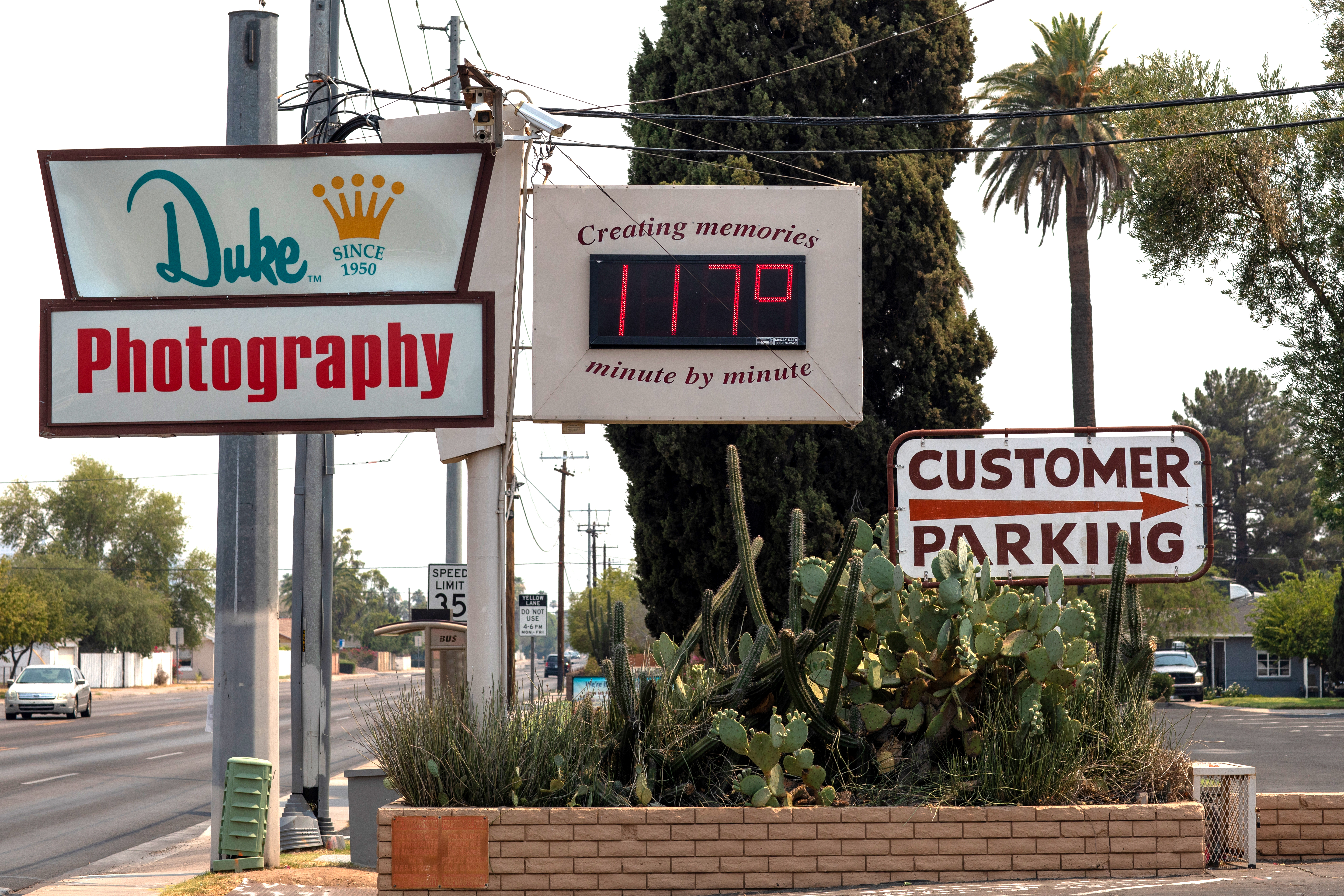When it's 115 degrees in the shade
Will climate change make parts of America uninhabitable?


A free daily email with the biggest news stories of the day – and the best features from TheWeek.com
You are now subscribed
Your newsletter sign-up was successful
This is the editor's letter in the current issue of The Week magazine.
The first time I experienced 110 degrees, I walked out of a strenuously air-conditioned hotel into the blast-furnace heat of a June day in Phoenix. WHAM. It was so hot, so crazy over-the-top hot, that I burst into laughter. You kidding me? That was a couple of decades ago, and now 110 is not unusual in Arizona, which had its hottest year ever in 2020, with 53 days of 110-degree heat and 14 days of 115 degrees or higher. This year might be hotter still — it was 118 degrees in Phoenix last week — as the entire Southwest and California bake in a pitiless megadrought. The Southwest has always been one of my favorite parts of the country; just before the pandemic halted travel in March 2020, I spent a delightful week in a casita tucked into Saguaro National Park south of Tucson. In recent decades, millions of "snowbirds" have permanently fled the upper Midwest and the Northeast for Arizona, Nevada, Utah, and Texas. But as the climate changes, will truly oppressive heat, and a dire lack of water, begin to force a reverse migration north?
The term "climate refugee" may summon images of Bangladesh, sub-Saharan Africa, or sinking islands in Micronesia. But in coming years, it could include Californians fleeing apocalyptic wildfires and choking air, and Arizonans and Nevadans facing unbroken months of heat so intense it is dangerous to leave the house much of the day. In this arid region, battles over scarce water will intensify. And the Southwest is not alone in its vulnerability. By 2040, climatologists warn, the Southeast will become noticeably hotter and even more humid. Southern Florida and coastal communities along the Atlantic will be so routinely flooded by rising seas and stronger storms that homeowners may have to retreat inland. Midwestern farmers are likely to see crop yields plunge. While we argue over other things, we might take note of the fact that the climate is already changing, with even more dramatic change to come.
The Week
Escape your echo chamber. Get the facts behind the news, plus analysis from multiple perspectives.

Sign up for The Week's Free Newsletters
From our morning news briefing to a weekly Good News Newsletter, get the best of The Week delivered directly to your inbox.
From our morning news briefing to a weekly Good News Newsletter, get the best of The Week delivered directly to your inbox.
A free daily email with the biggest news stories of the day – and the best features from TheWeek.com
William Falk is editor-in-chief of The Week, and has held that role since the magazine's first issue in 2001. He has previously been a reporter, columnist, and editor at the Gannett Westchester Newspapers and at Newsday, where he was part of two reporting teams that won Pulitzer Prizes.
-
 What is the endgame in the DHS shutdown?
What is the endgame in the DHS shutdown?Today’s Big Question Democrats want to rein in ICE’s immigration crackdown
-
 ‘Poor time management isn’t just an inconvenience’
‘Poor time management isn’t just an inconvenience’Instant Opinion Opinion, comment and editorials of the day
-
 Bad Bunny’s Super Bowl: A win for unity
Bad Bunny’s Super Bowl: A win for unityFeature The global superstar's halftime show was a celebration for everyone to enjoy
-
 How climate change is affecting Christmas
How climate change is affecting ChristmasThe Explainer There may be a slim chance of future white Christmases
-
 Why scientists are attempting nuclear fusion
Why scientists are attempting nuclear fusionThe Explainer Harnessing the reaction that powers the stars could offer a potentially unlimited source of carbon-free energy, and the race is hotting up
-
 Canyons under the Antarctic have deep impacts
Canyons under the Antarctic have deep impactsUnder the radar Submarine canyons could be affecting the climate more than previously thought
-
 NASA is moving away from tracking climate change
NASA is moving away from tracking climate changeThe Explainer Climate missions could be going dark
-
 What would happen to Earth if humans went extinct?
What would happen to Earth if humans went extinct?The Explainer Human extinction could potentially give rise to new species and climates
-
 Bacteria can turn plastic waste into a painkiller
Bacteria can turn plastic waste into a painkillerUnder the radar The process could be a solution to plastic pollution
-
 Florida has a sinking condo problem
Florida has a sinking condo problemUNDER THE RADAR Scientists are (cautiously) ringing the alarms over dozens of the Sunshine State's high-end high-rises
-
 Diamonds could be a brilliant climate solution
Diamonds could be a brilliant climate solutionUnder the radar A girl and the climate's best friend
